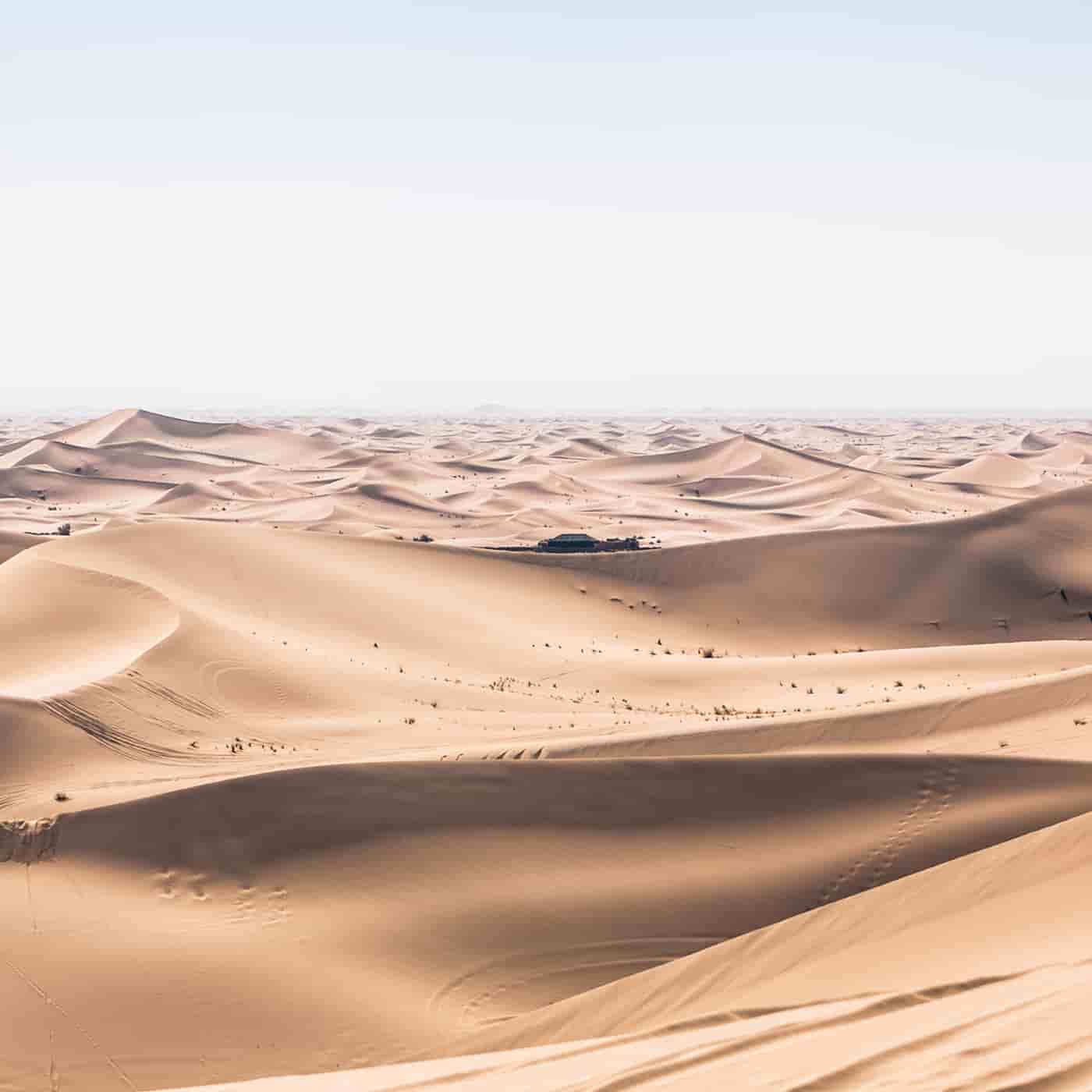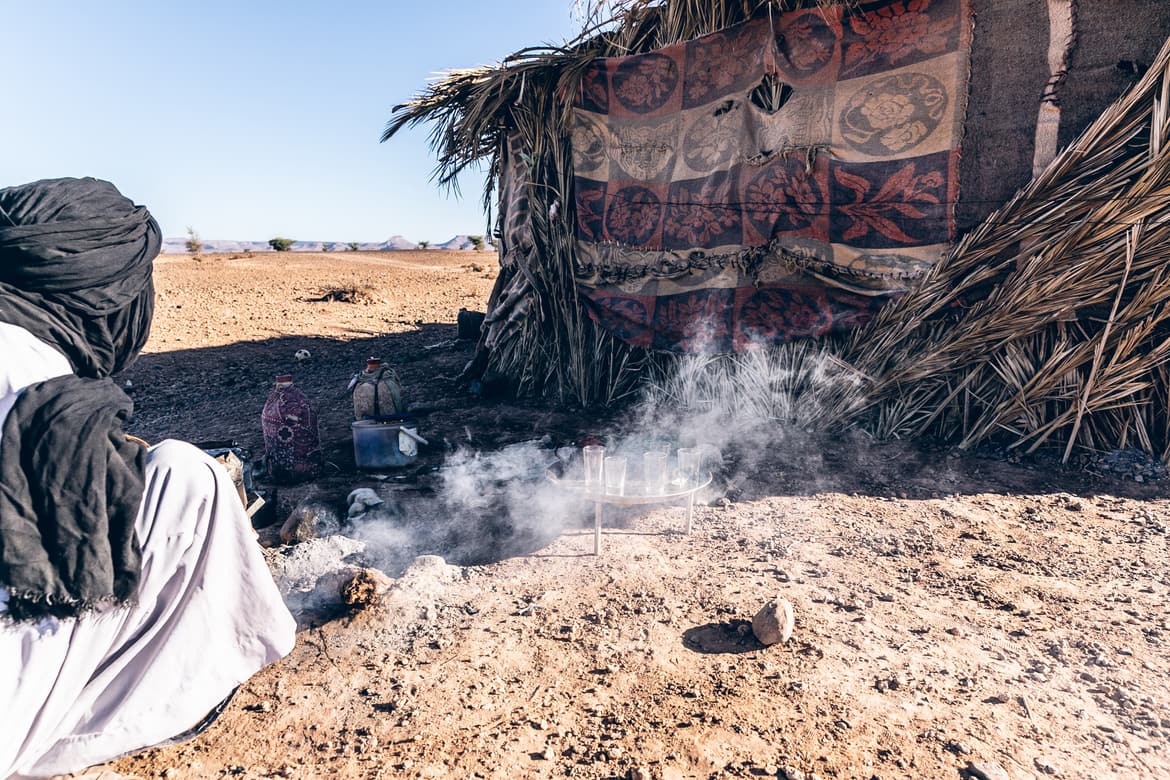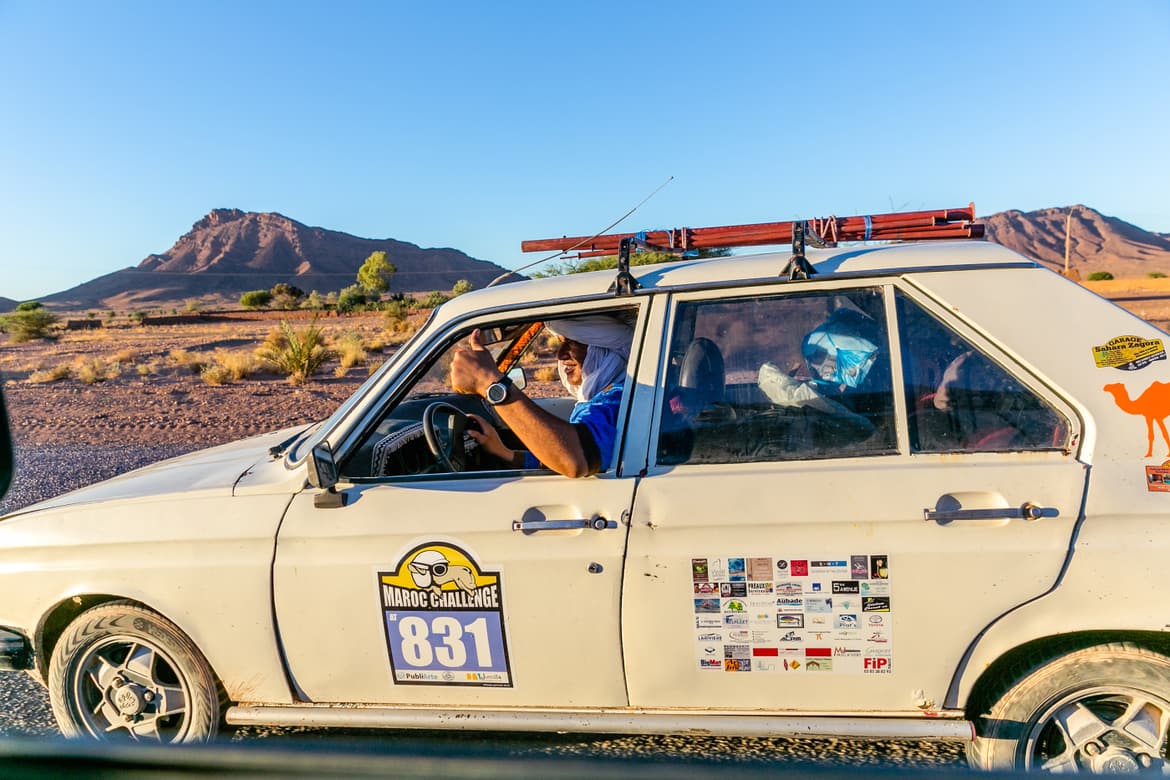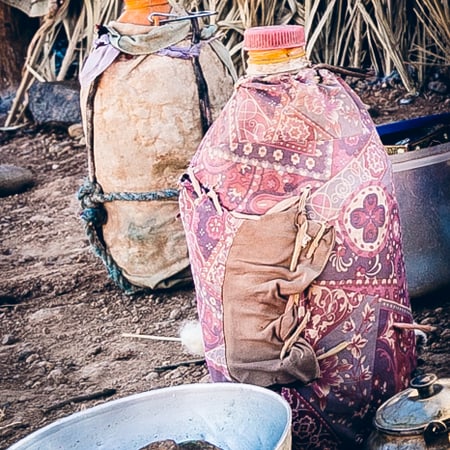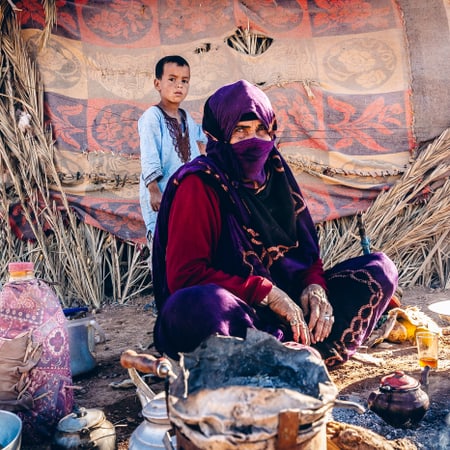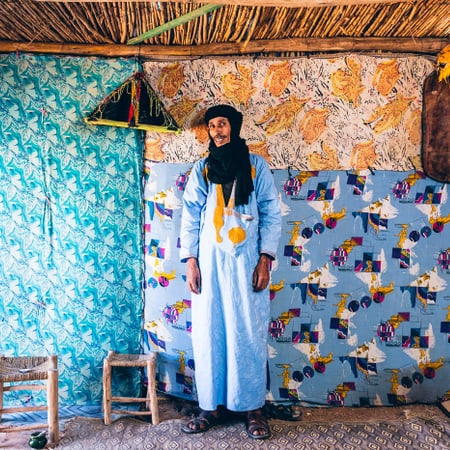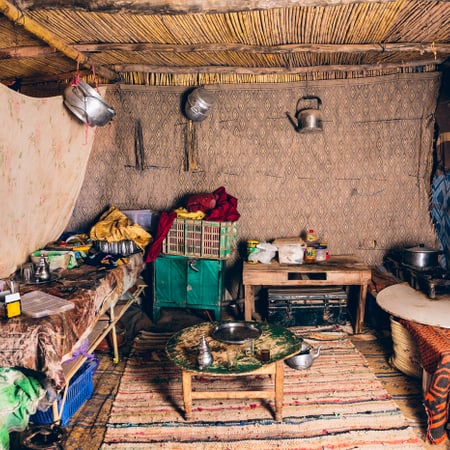Nomads have developed not only a lifestyle of living as basic as their desert surrounding - they have also developed a mindset that celebrates vastness which we might call «emptiness».
«I have a house now», says Halal Aziz, «…but I live like in a nomad’s tent.» What he means is: there is no bulky television; there are no fancy kitchen utilities. His house looks empty, in the mere sense of it - to him it’s boiled down to necessity but it celebrates a certain vastness. The less is more principle in its perfect application.
